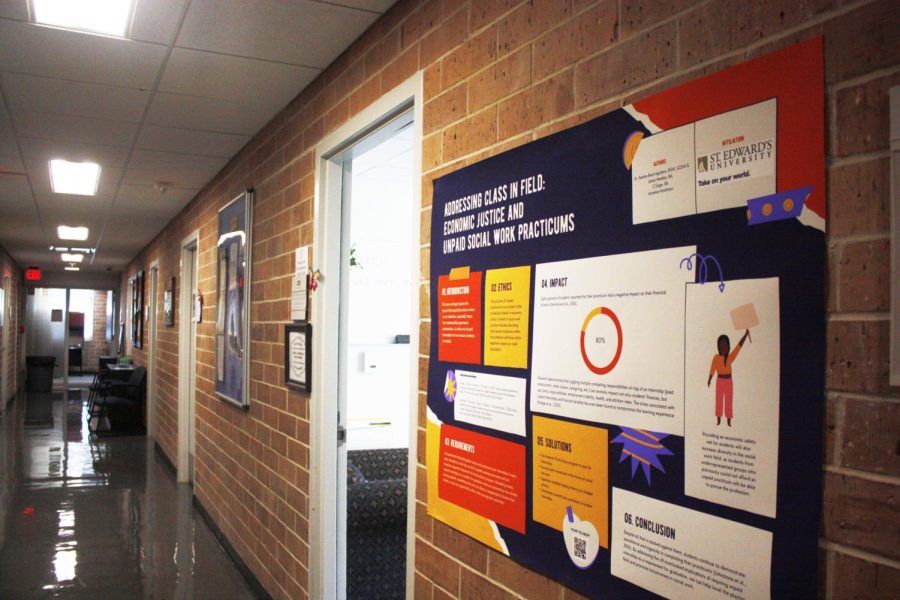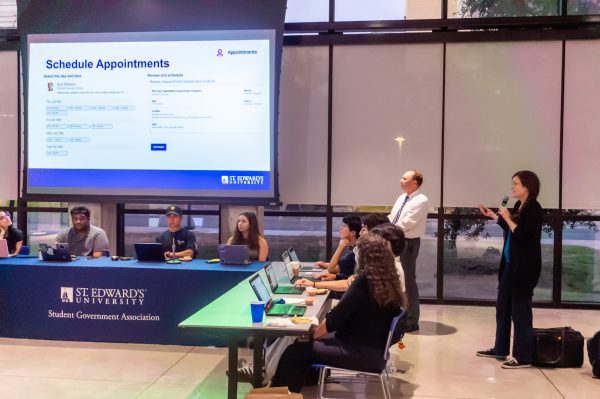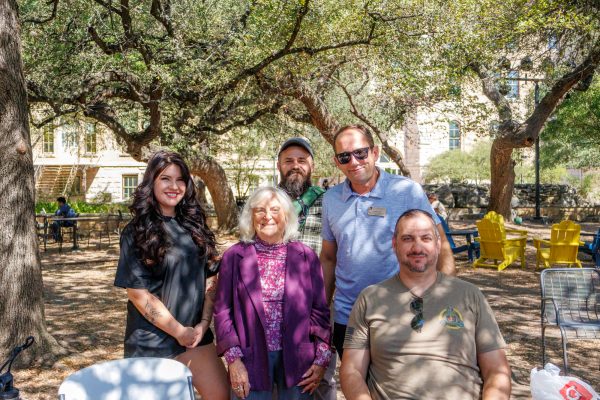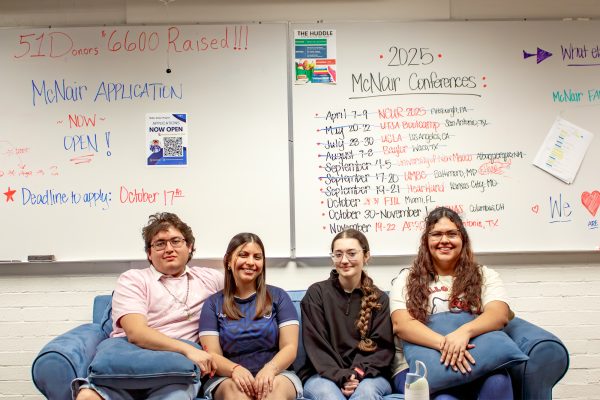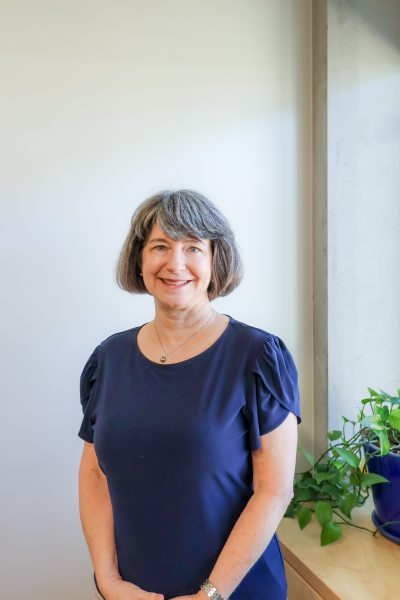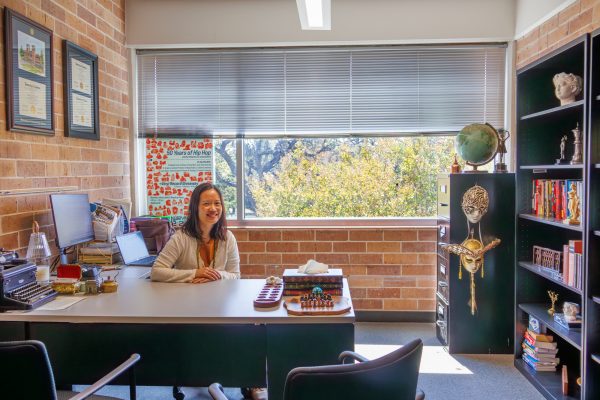New certificate for Advanced Spanish in the Health and Helping Professions aims to break down language barriers
The second floor of Equity Hall is home to the School of Behavioral and Social Sciences, which oversees the social work and psychology majors — two fields the certificate is directed at.
“We haven’t always been good at this,” associate professor and social work program director Laurie Heffron said about language justice. Language justice is the idea that every person should have the opportunity to use the language they feel most comfortable and empowered to speak in.
The latest U.S. Census reported that 10,230,072 people living in Texas, or 35% of the state’s population, speak a language other than English at home. In August 2021, the Federal Reserve Bank of Dallas shared that Spanish-language natives represent 81% of all non-native English speakers in the Eleventh Federal Reserve District, which includes all of Texas, northern Louisiana and southern New Mexico. But when professionals can’t accommodate a Spanish-speaker, the client must use English, or their unpreferred language, to communicate their needs.
To address this issue, the St. Edward’s University Spanish program under the School of Arts and Humanities is offering a new certificate for Advanced Spanish in the Health and Helping Professions. This undergraduate certificate aims to give targeted language instruction to students completing degrees in fields like social work, psychology, pre-medical and biological sciences.
Someone with limited English proficiency may have increased mental health-related risks, deal with added stress and face social isolation — which can all be additional barriers when seeking health and helping services.
“Unfortunately, we have a shortage of providers who are linguistically responsive,” Heffron said. “Research shows that bilingual, bicultural providers need training and mentorship and can go a long way.”
Heffron — who has worked with immigrant communities, refugees and asylum seekers — said social workers see many younger immigrants who pick up English quickly and have to translate what may be traumatic events for their family.
“This certificate is a nice way for us to try to bring that home to the community and the campus,” Heffron said.
To create the 12-hour certificate, Spanish professors visited classes across disciplines to integrate the field-specific material with the language. The certificate is directed at advanced Spanish speakers and some second language learners, determined by a language placement exam. Four courses have been approved to constitute the 12 required hours, according to associate professor of Spanish Georgia Seminet who helped create the certificate. Associate professor of Spanish Regina Faunes and assistant professor of Spanish Emily Bernate are the two other full-time, tenured professors who helped form the certificate program courses.
Currently, 15 students are registered for the special topics course SPAN 3399: Spanish for the Health and Helping Professions. The course has been approved for the certificate under the permanent course number SPAN 3355.
The three other courses required to complete the program are SPAN 3357: Spanish for Healthcare Professionals and Latinx Health in the U.S.; SPAN 4305: Introduction to Translation and Interpretation in Spanish; and SPAN 4363 for internship course credit. According to Seminet, Introduction to Translation and Interpretation in Spanish is dedicated to healthcare and social work jargon and is offered as an online, asynchronous course to be accessible to multiple students.
Maria Alvarado, a senior social work major and fluent Spanish speaker, believes speaking a client’s preferred language is important in her field.
“When people are in crisis, especially if clinicians are on site with them, emotions and behaviors can get mistranslated in the moment. Having someone that can immediately and proficiently speak with people leads to faster and more appropriate treatment,” Alvarado said. “Everyone deserves equal treatment no matter what language they speak. It’s important to push Latinos into this field who are aware of cultural contexts as well.”
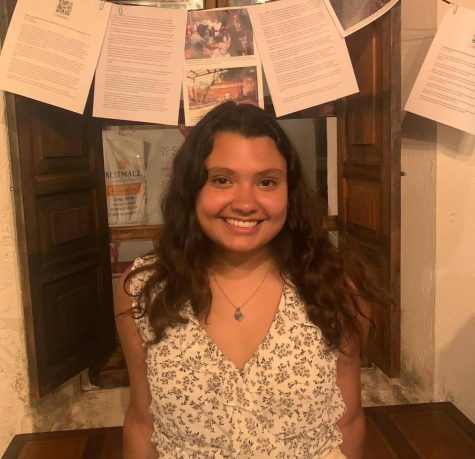
Nina Martinez is a senior at St. Edward’s University, earning her Bachelor’s in Writing and Rhetoric. Martinez has reported and edited for Hilltop...

